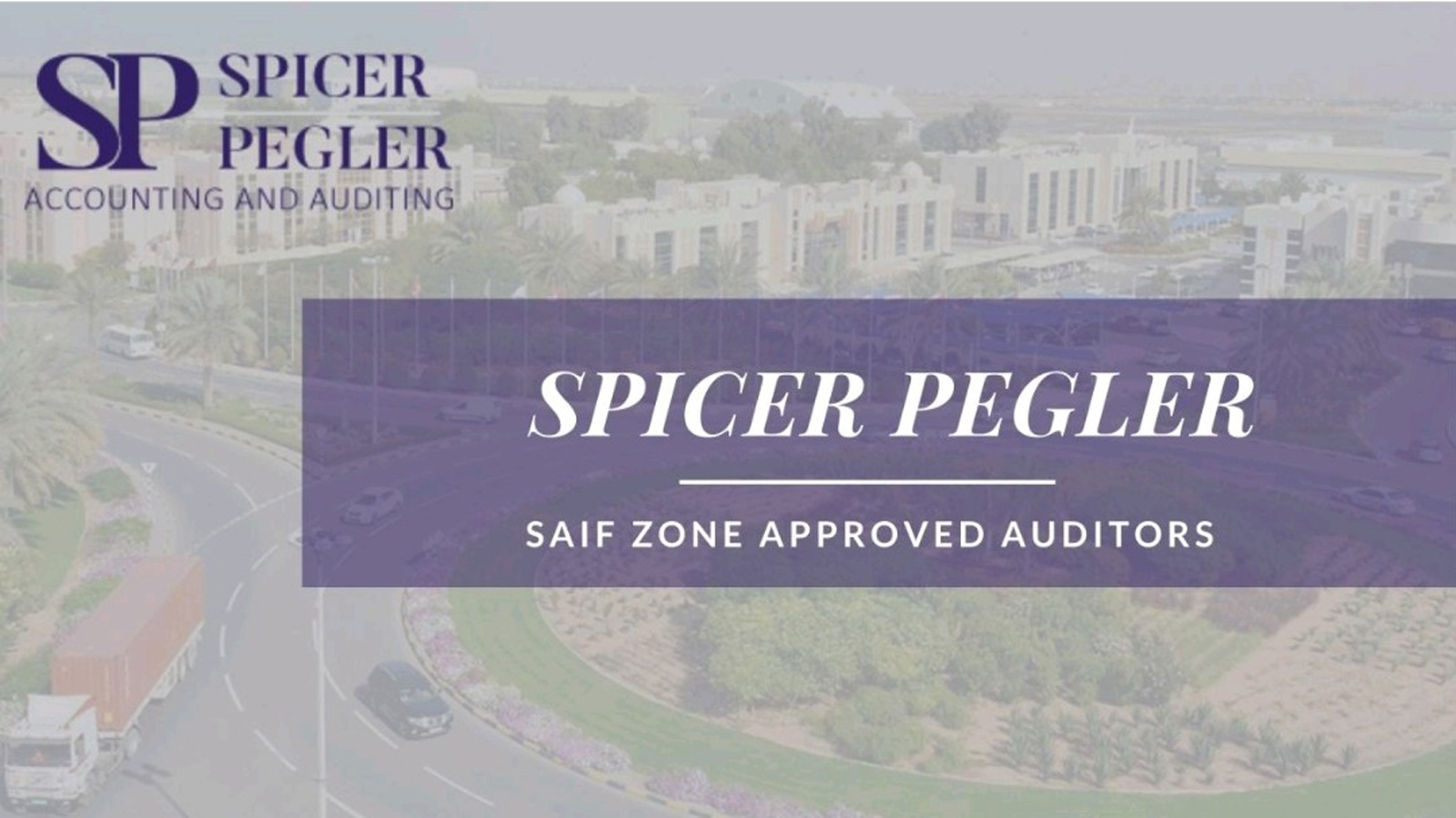Sharjah International Airport Freezone
Sharjah Airport International Free Zone (SAIF Zone) was initiated in 1995 & supports a fine reputation of being a popularly preferred free zone amongst entrepreneurs who intend to invest in Sharjah. The SAIF-Zone authority has specified the requirement that enterprises operating within the free zone must get their books of accounts audited by auditing firms registered with the SAIF Zone.
Audited books of accounts are mandatory for the companies to get their Trade licenses renewed. The SAIF Zone obligates that the auditing should be completed by their approved listed auditors. The businesses require to conform with the annual audit requirement to avoid the circumstances of any financial inconsistencies.
The SAIF Zone has been inviting investors for more than 25 years to get convenient & efficient business setup procedures in an ideal location. Approximately 40% of the UAE’s total industries are situated in Sharjah. This includes petrochemicals, textiles, leather, food, & other non-metal industries. SAIF Zone delivers today’s demanding businesses with the benefits of a strategic location, trustworthiness, efficiency, diversity of industries, licenses, & a strong company structure. It is located adjacent to Sharjah International Airport & close to the seaports & airports of Dubai & Abu Dhabi. This places your business at the gateway of global trade with unmatched connectivity. Strategically located from all the major countries of the world Sharjah gives you added advantage for your business.
The companies in the SAIF Zone benefits from Sharjah’s excellent connectivity through the sea, air, & land. The Sharjah International Airport, Port Khalid, Port Khorfakkan & Hamriyah Free Zone Port allow the business to connect with the outside world more efficiently.
The operational companies located in the SAIF Zone must get the books of accounts audited & submitted to the authority within 90 days from the end of the financial year. The audit report requires to be presented along with the audited financial statements. The failure to conform with the compulsory audit requirement will lead to legal actions complying with the company, which includes the non-renewal of trade license. To avoid any legal outcomes, it is important that businesses appoint audit firms that are listed with the SAIF zone authority.
Documents Required by the SAIF Zone Approved Auditors to Conduct an Audit
• Memorandum of Association (MoA)
• Articles of Association (AOA)
• Copy of the updated Trade License
• Trial Balance, Balance Sheet, Profit & Loss Statement
• Registration Details for VAT and Excise Tax (If Applicable)
• Books of Accounts
• Audit schedules (Fixed Assets Register, aging of accounts receivable & payable with information for debts, accruals, etc.)
• Details of closing stock
• Details of fixed asset additions & disposals during the year
• Copies of bills & invoices
The auditors listed with the SAIF Zone requires to evaluate & report on the books of accounts of the company made in accordance with local & international regulations. The auditor must make sure that the accounts shown have been prepared under the mandated regulations, to provide a true & fair view of the financial statements. These financial statements prepared must be free from any material misstatement. The companies operating in the free zones are specifically subjected to perform activities stated in the trade license & if any company performs activities not mentioned on their trade license, then the auditor should state that in his audit report.
Maintaining an Accounting Record for Auditing
It is obligatory for all the enterprises operating in the SAIF Zone to maintain the books of accounts that correctly describe the financial position of the company. With the accurately maintained books of accounts, the directors can guarantee that the balance sheet & profit & loss accounts are prepared in compliance with International Financial Reporting Standards (IFRS).
The books of accounts need to maintain a record of
• Assets and liabilities of the company
• Day-to-day entries of all sums of money received & expended
• Receipt & expenditure
As per the regulations, the books of accounts must be kept at the registered office of the company within the SAIF Zone. The shareholders or representatives of the company should have access to the accounting records to perform an inspection at any time.
How can we help?
We have approved auditors at the SAIF zone authority. Our highly experienced auditors will not only conduct a flawless audit but will also assist in all financial management decisions to be made.
As leading experts, we help build & enhance trust between businesses & the public, by responding to emerging issues & protecting the public interest. Where Spicer-Pegler works to provide safeguards to help companies become more resilient and ready for a better future.
We at Spicer-Pegler test your company’s documents to determine whether the records and reports issued by your company’s various departments are correct or not, as we work to present the information according to the accounting standards approved in your company’s geographical location.



